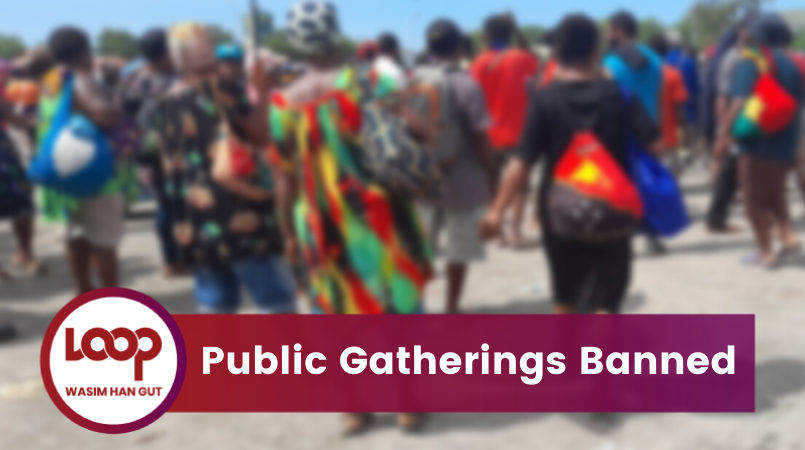
Following the detection of the first Omicron variant case in PNG the Office of the Controller has banned gatherings of more than 100 people until March 1, 2022.
Controller of the National Pandemic Response, David Manning said ban had become effective as of Friday, 14 January and it means that spectators will not be allowed if a sport requires 100 team members.
The first case of Omicron in PNG is a 45-year-old expatriate man, who travelled from South Africa. He was diagnosed in Goroka, Eastern Highlands Province on 26th of December 2021.
It is believed that the person contracted the virus outside of South Africa because the incubation period of Omicron is less than five days and the virus was detected nine days after he left Johannesburg.
According to the Controller Manning, big gatherings have proven to be avenues through which large numbers of people become infected with infectious diseases such as COVID-19.
“March is when we will see increasing numbers in COVID-19 cases as per the modeling from our Epidemiological (EPI) team. We are attempting to control the rate of infections before we go to the election period. We cannot take this lightly,” he said.
Mr Manning urged the people to learn from other examples from around the globe for instance, when the Delta Variant emerged last year, India was in its election campaign period. Sadly, about 400,000 people died during this period in India alone.
He stated that requests for events of more than 100 persons will not be approved until 28th of February. Accordingly, approvals given prior to this new direction are now revoked.
The gatherings include social events like clubbing/bar activities, dances, diners, parties, sporting competitions and religious activities.
Those affected are now advised to liaise with the Niupela Pasin team at the National Control Centre for rescheduling of events.
In addition, the Controller said those who want to hold gatherings or events with participants numbering from 20 to 100 must seek approval from the NCC.
Under the same direction, Mr Manning has urged all organisations whether private or public, to liaise with the Niupela Pasin team to formulate standard operating procedures for COVID-19 workplace safety and operations within their organisations.
“While the severity of Omicron variant is lower than Delta, it spreads faster and therefore there are more people getting sick with Omicron than with the original COVID-19 and other variants, putting a lot of stress on health resources in affected countries such as Australia,” Mr Manning said.
The first case of Omicron was detected in South Africa on 24 November 2021, and was declared by the World Health Organisation (WHO) as a Variant of Concern on 27 November 2021. It is now detected in close to 30 countries including Australia.
Mr Manning said that prevention is better than cure and one way is to prevent the virus is to get vaccinated.
Statistics currently show that 229,459 people in the country are fully vaccinated and those that have received at least one dose of a COVID-19 vaccine is 290,946. This shows that the COVID-19 vaccines are safe.
